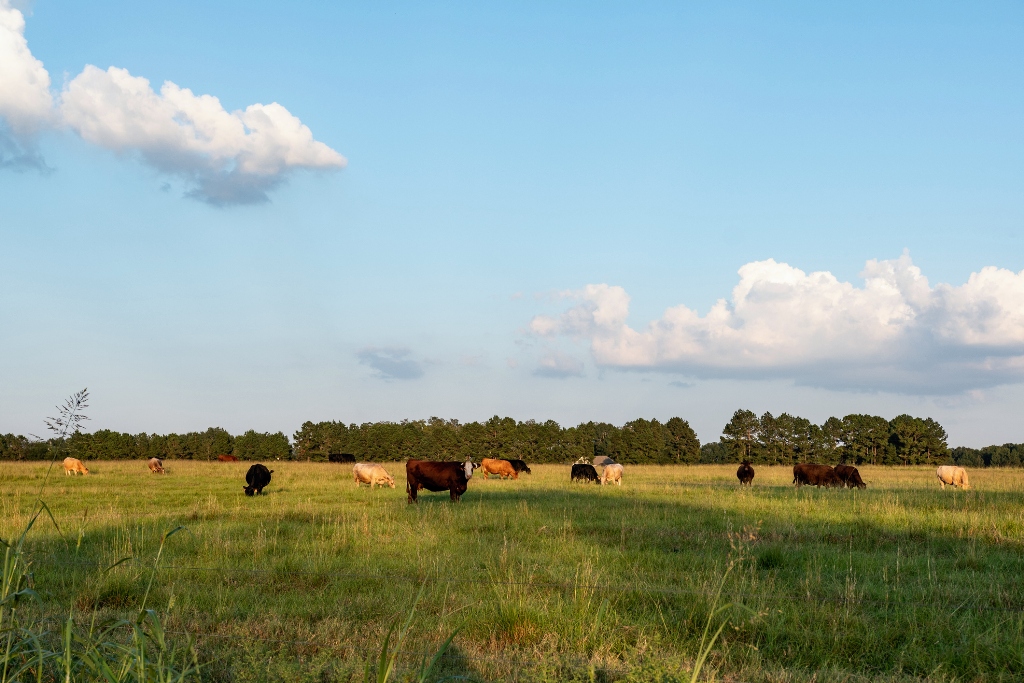
Buying land in Alabama requires plenty of due diligence and research. To help you get started, check out this step by step guide.
- Know your purpose for buying land
- Timberland
- Hobby farms
- Homesteads
- Cattle farm
- Vegetable farm
- Cropland
- Pasture and hay
- Recreation and hunting
- Nature conservation
- Research the market
- Find the right Realtor to work with
- Search for the right property
- Location
- Zoning, covenants, and restrictions
- Utilities
- Physical features>
- Improvements
- Look into the land’s history
- Work on the financing
- Negotiate and close the sale
Your purpose for the land will guide your property selection. Do you plan to live on the property? Will you develop it into a residential area? Will it be used as farmland, and if so, what kind of crops or animals do you intend to raise? The location, acreage, and improvements you’ll need will depend on your intended use.
Some of the most common uses of land in Alabama include:
Look into current market trends, including property prices, average land sizes, area developments, and others. For example, in Alabama, land in urbanized areas like Birmingham or Montgomery come with premium prices, while more affordable options can be found in West Alabama communities. Search and compare real estate information in various parts of the state to help you narrow your proper search.
It’s important to work with a Realtor who specializes in land and lots for sale. The Realtor must be a local expert who can guide you through the nuances of buying land in Alabama. They will know where to find the right property that matches your goals, what to look for in assessing a property, negotiate prices and other terms, and help you with the paperwork that comes with the process.
Once you’ve identified the areas where you want to buy, it’s time to find the right property. Your Realtor will help you search for land that matches your intended use and has the features you need.
Among the things to look into include:
The right location depends on how you plan to use the land. If you intend to make it your home, consider proximity to your and your family’s needs, including schools, grocery stores, health facilities, and other basic living necessities. If you plan to start a farm but don’t intend to live on it, it has to be close enough to your residence so you can conveniently travel back and forth. In addition, consider access to veterinarians, farming supplies, and other necessary services to operate your farm smoothly.
Is the area zoned for your intended use, such as agricultural, residential, or commercial? Do you have free access to the property or do you need to get an easement? Are there restrictions on what you can do on the land? Perhaps part of it has preservation easements and cannot be developed. Or there could be laws that affect the type of buildings and improvements you can add.
Make sure you have access to water, electricity, or gas. Check the sewer system as well. If there’s none and municipal sewer is not available, do a percolation test to determine if a septic tank can be built. Other utilities you might need are telephone and internet services.
Is the soil quality suited for the type of crop you want to plant? Does the land have a sloping terrain? Are there features that can injure animals, or poisonous plants they might ingest? You may need to work around any area of concern, or find a more suitable property.
Available barns, tool sheds, and other improvements can be valuable features, as they are expensive to build from the ground up.
Land ownership can be more contentious than home ownership, especially for property that has been passed on through family generations. Easements and inheritance are typical land title issues. Commission a thorough title search to reveal potential claimants or liens against the property. Get title insurance to protect you from unforeseen claims and other issues.
Paying cash is the most common method when buying land. Getting financing for land can be difficult with a standard lender, as land is considered a higher risk purchase. However, there are institutions that specialize in land or lot loans, particularly in rural areas. Generally, a 15% to 25% down payment is required, and interest rates are slightly higher. Owner financing is also a widely used option.
Your real estate agent will help you negotiate the best possible price on the property you choose. Another point for negotiation is who pays for expenses like a survey, closing costs, attorney’s fees, and others. Mineral rights, easements, and other land rights may also be negotiated separately.
Once you and the seller agree on all terms and financing has been finalized, the sale is closed.
For more real estate buying tips in Alabama, check out our blog.
Get in touch with me, Bill Mackey, for expert guidance in buying land in The Heart of Dixie. Call 334-289-8470 or email bill@billmackey.com.
